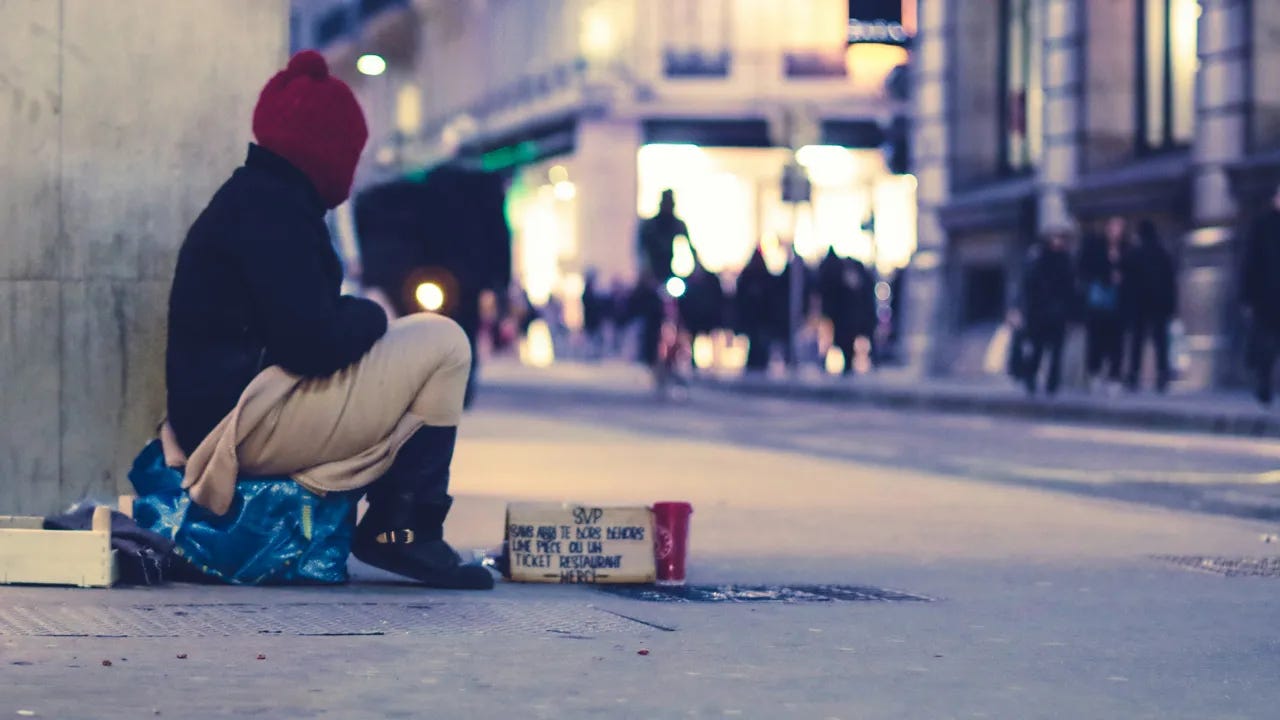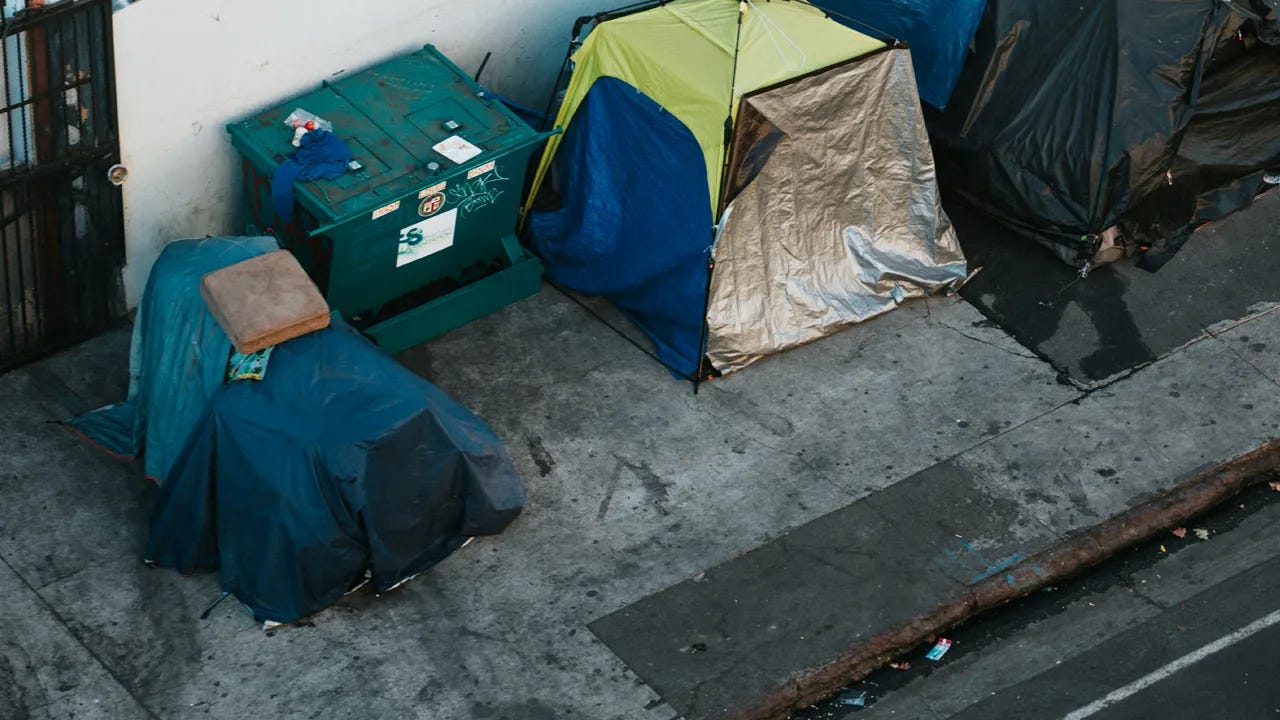Part 1: Homelessness in Spokane, Washington
The effect of the homeless on Spokane
Why should we care about the chronically homeless? Should we care at all? The answer to this question depends on your worldview. If we’re honest, most of us don’t go to bed thinking about the challenges faced by the chronically homeless. Our personal lives are filled with countless demands, leaving little time or energy to dwell on such issues. This is an unfortunate reality.
However, that doesn’t mean we shouldn’t care. Whether it’s a moral obligation to help those who are struggling or a recognition of how the issue impacts our community, there are reasons to pay attention. For some, it might seem like the chronically homeless have no direct impact on their daily lives. For others, the consequences have been profound, ranging from personal loss to significant harm to their livelihoods. And then there’s the broader issue: the destruction caused by the cycle of addiction on the streets.
Businesses Affected
The chronic homelessness crisis has caused irreparable damage to downtown businesses. While statistics suggest property crime has decreased in Spokane in recent years, the reality on the ground tells a different story. A walk through downtown—especially along Second Avenue—reveals property damage everywhere. Broken windows, graffiti-covered public spaces, and trash spilling onto sidewalks and roadways are common sights.
Businesses have faced increasing break-ins, theft, and vandalism, with some forced to close their doors. For example, Zona Blanca, owned by Chad White, had to shut down. White explained, “The hard truth is, like many businesses in downtown Spokane, we’ve faced a challenging and rough road. The increasing crime, visible drug use, and damage to public and private property have made it harder to maintain a safe environment for our team, partners, and guests.”
In 2022, the Starbucks at Second and Division also closed due to safety concerns for employees and customers. A Spokesman-Review article summarized the situation: “In the end, lattes and Spokane’s homeless couldn’t co-exist.” Today, the location has become a gathering spot for the chronically homeless, many of whom struggle with fentanyl addiction. The former Starbucks now has boarded-up windows, and its surroundings are often crowded with people sleeping on sidewalks or in vacant parking spaces. This underscores the safety concerns that drove the closure.
Individuals Affected
For individuals living or working downtown, the challenges are even more apparent. A young woman who works two jobs in Spokane’s downtown area shared her experience. She has been there for over a year and says she doesn’t feel personally endangered because she knows many of the homeless and tries to treat them with kindness. However, she regularly encounters people sheltering in parking garages and has to ask them to leave—a repetitive and frustrating task.
Others avoid downtown entirely, especially families with children, citing safety concerns. Residents living along Sprague Avenue have also witnessed disturbing scenes. One man recounted experiences outside his apartment, including fights, assaults, and vandalism. He described finding passed-out individuals, naked junkies on sidewalks, and people engaged in inappropriate public behavior. He also mentioned an incident involving a “homeless strangler” who attacked a woman.
According to him, the police often arrest these individuals only for them to be released the same day. “It’s really demotivating,” he said, reflecting the frustration many feel.
Resources Affected
The chronic homelessness problem affects every citizen, directly or indirectly. Emergency response services, for instance, are frequently tied up addressing overdoses. Between December 1st and 4th alone, Spokane news outlets reported over 15 overdoses, not including unreported cases. While everyone deserves treatment, these incidents drain resources that could have been used elsewhere.
Additionally, cleanup efforts for trash, debris, and hazardous materials left behind by the homeless are funded by taxpayer dollars at local, state, and federal levels. While cleaning up is necessary, the extent of these efforts highlights the severity of the problem.
Conclusion
Ultimately, whether or not you choose to care about this issue is a personal decision. However, it undeniably affects a large segment of Spokane’s population. From those living on the streets to business owners, residents, and workers, the impacts are widespread. Addressing chronic homelessness is not just about compassion; it’s about creating a safer, healthier, and more functional community for everyone.
— Ryan Gaylee
https://www.spokesman.com/stories/2024/feb/13/soulful-soups-owner-announces-plan-to-sell-busines/
https://www.khq.com/news/starbucks-at-2nd-and-division-closing-permanently-in-part-due-to-safety-concerns/article_293e104c-49b3-11ed-9f54-07e79e357288.html
https://www.google.com/search?q=starbucks+closses+in+spokane&rlz=1CAVNCX_enUS1088US1088&oq=starbucks+closses+in+spokane&gs_lcrp=EgZjaHJvbWUyBggAEEUYOTIICAEQABgWGB4yDQgCEAAYhgMYgAQYigUyCggDEAAYgAQYogTSAQkxMjI3MmowajeoAgCwAgA&sourceid=chrome&ie=UTF-8#fpstate=ive&vld=cid:6a772871,vid:vKbjQo1BBTM,st:0
https://www.khq.com/news/homeless/spokane-businesses-trying-to-survive-while-dealing-with-crime-and-rising-insurance-costs/article_b9778eac-a949-11ef-869c-5730e000ca9b.html
https://www.spokesman.com/stories/2022/oct/12/starbucks-a-window-into-america-closing-in-spokane/
https://www.spokesman.com/stories/2024/sep/10/fed-up-business-leaders-decry-spokanes-homelessnes/




